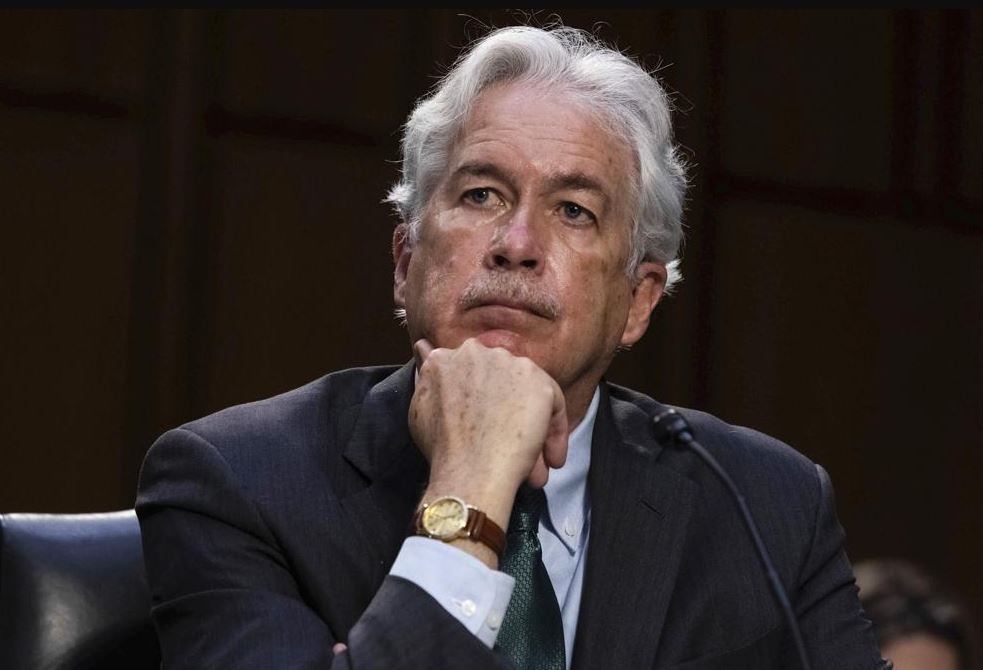In a face-to-face meeting on Monday in Turkey, the director of the Central Intelligence Agency warned his Russian counterpart against the use of nuclear weapons, according to White House officials. The meeting was part of the Biden administration’s effort to reduce the risk of escalation in the Ukraine conflict.
Since Moscow’s invasion of Ukraine in February, the C.I.A. director William J. Burns supervised the highest-level in-person discussions with top Russian and American officials. The talks are a part of the Biden administration’s attempts to increase its connections with top Russian officials in order to communicate its worries over the nuclear danger.
Mr. Burns’s meeting with Russian officials was not an effort to discuss the conclusion of the conflict; American authorities have consistently said that no peace negotiations would be held without the participation of the Ukrainian government. According to these insiders, the conversations instead focused almost completely on the possibility of nuclear escalation.
The Americans arranged the meeting between Mr. Burns and Sergei Naryshkin, the head of Russia’s foreign intelligence agency. They were arranged during a time of escalating nuclear tensions.
American and European officials saw their current objective as containing the conflict to Ukraine and preventing Russian President Vladimir V. Putin from using tactical nuclear weapons or other weapons of mass destruction.
Mr. Putin has denied that Russia intended to use nuclear weapons in Ukraine. These remarks reduced the amount of fear in both Washington and European capitals, but Russia’s frequent nuclear threats and combat failures ensure that concern over the possible use of nuclear weapons remains high.
Mid-October, the U.S. administration received intelligence about negotiations between Russian generals regarding the use of nuclear weapons. These allegations sparked anxiety since they appeared around the same time that Russia started accusing Ukraine of planning to deploy a dirty bomb, an explosive device that disperses radioactive material over a large region. Some U.S. officials believed that the charges may be used to justify the use of nuclear weapons.
Since Russia’s invasion, American officials have highlighted their desire to back the Ukrainians while preventing the situation from escalating into a larger nuclear war.
In October, the defence secretary, Lloyd J. Austin III, held two phone talks with the Russian defence minister, Sergei K. Shoigu, about nuclear concerns. In recent months, Jake Sullivan, the national security adviser, has also spoken with Nikolai Patrushev, his counterpart, on nuclear problems. Mr. Burns has now flown to Turkey to convey an additional message.
A spokeswoman for the White House acknowledged Mr. Burns’s travel after Kommersant, a Russian business daily, reported on Monday that Mr. Naryshkin headed the Russian team in Ankara.
Later, Dmitri S. Peskov, a spokesperson for the Kremlin, acknowledged to Tass, the Russian official news agency, that a meeting had taken place but did not provide any information. A C.I.A. spokesman refused to comment; the agency never discusses the travel of its head.
According to a spokesperson for the National Security Council of the White House, the Ukrainian government was told in advance of the trip. President Biden has reiterated that Ukraine, not the United States, would choose if and when discussions to end the conflict start.
In recent weeks, Russian and Ukrainian officials have made separate public statements on the possibility of peace negotiations, more than six months after their last known direct negotiations broke down.
The chairman of the Joint Chiefs of Staff, General Mark A. Milley, has advocated that Ukraine should talk with Russia to consolidate its recent successes. According to other top American officials, neither Russia nor Ukraine is prepared to engage in substantive discussions.
General Valeriy Zaluzhny, the commander of the Ukrainian military, said in a message on the messaging app Telegram on Monday that he had talked with General Milley and restated the country’s stance on potential negotiations: Russia must leave before any discussions are feasible.
According to American authorities, while Russia is losing, Vladimir Putin does not think his troops will eventually be destroyed, and he will not make substantial concessions or cede territory he has captured. The Ukrainian government feels it is winning and believes it can recapture territory gained by the Russian Army within the next year.
An American official said that Mr. Burns also brought up the issue of Americans arrested in Russia during his discussion. The Biden administration has attempted to arrange a prisoner exchange with Russia to secure the release of W.N.B.A. star Brittney Griner and espionage suspect Paul N. Whelan.
In August, American and Russian officials said that they would negotiate about Ms. Griner and Mr. Whelan via a secret channel established by Mr. Biden and Mr. Putin during their meeting in Geneva the previous year. U.S. authorities have reluctant to provide information on this channel. The Biden administration has proposed the release of Russian weapons trader Viktor Bout in exchange for the freedom of the two Americans.
However, negotiations on the release of Ms. Griner and Mr. Whelan have reached a stalemate, and U.S. officials have said that they do not anticipate any breakthrough as a result of Mr. Burns’s trip, the purpose of which is to prevent any possible nuclear confrontation or escalation.
The meeting also coincided with the United States’ announcement of fresh penalties targeting Kremlin-affiliated Russian billionaires. As part of an attempt to disrupt supply networks and make it more difficult for Russia to replenish its military, the Treasury Department has barred a total of 14 persons, 28 businesses, and eight aircraft.
Before Mr. Putin authorised the full-scale assault in February, Mr. Burns, a former U.S. ambassador to Russia, travelled to Moscow in November to inform Russian authorities that the United States was aware of Moscow’s preparations and would react aggressively to any attack. Mr. Burns talked by video to Mr. Putin, who was at the time in Sochi.
